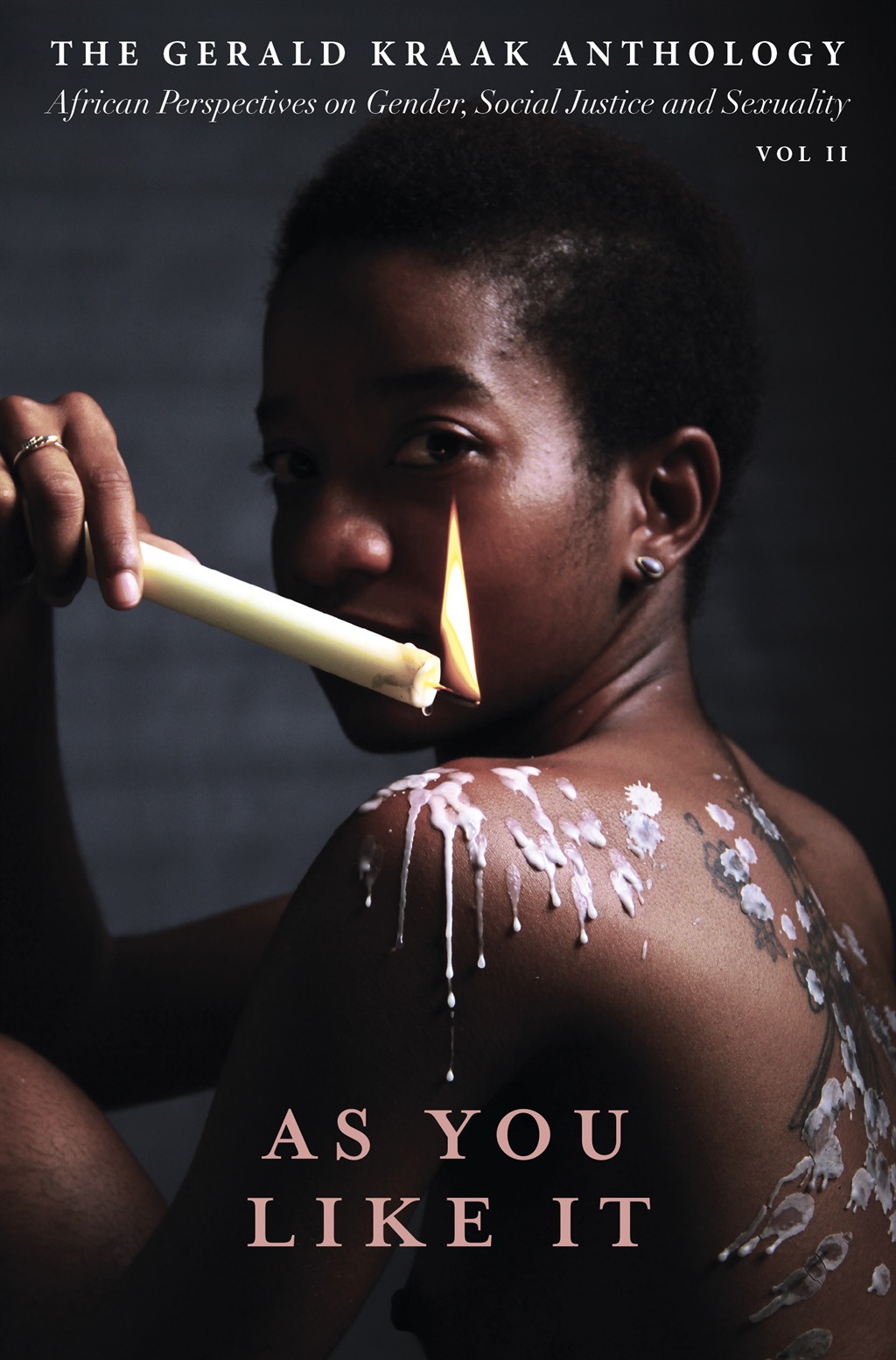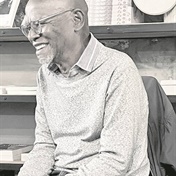
Gerald Kraak Anthology, As You Like It
African Perspectives on Gender, Social Justice and Sexuality
By Jacana Media
172 pages
R240
The second offering in the Gerald Kraak annual anthology, As You Like It, is a collection of the short-listed entries submitted for the Gerald Kraak Award.
The award is a joint initiative by the Jacana Literary Foundation and the Other Foundation and is named after Gerald Kraak (1956–2014), a passionate champion of social justice and an anti-apartheid activist.
Ahead of the Soweto Pride Festival, set to take place this weekend, Jacana Media hosted a book night in collaboration with the Forum for the Empowerment for Women on Thursday evening, speaking to the short stories which are included in the Gerald Kraak Anthology.
In this extract from the second volume, The Man at the Bridge by Kenyan writer Kiprop Kimutai, Kwambai is faced with an unexpected encounter with a man which leaves him searching for answers about his own sexuality.
Just after Riaku Bridge, a place where trees congregated at night, Kwambai saw the glint in a man’s eyes and stopped his car. Stepping out, he peered into the dark. It was late so most men had gone, leaving behind only the most determined. The man was leaning on the rails of the bridge, his hands tucked in his tight jeans as if he possessed the night. Kwambai walked up to him, close enough to smell his dusty jacket.
It was the man who kissed first. He was cold and rough, yet Kwambai felt as if he was being fed hot mercury. He became eager too, and grasped the man’s shoulders, as his tongue swivelled down to the man’s chin and neck. The man grabbed Kwambai by the waist and drew him in, pulling their bellies together. And Kwambai, in that most unholy moment, remembered Chela that morning. “These days you have a belly! You don’t fear getting fat like that?”
Her face was absent then, just an opaque, oval shape.
Kwambai stepped back to look at the man’s face. He resembled Bob Marley – strong cheekbones, narrow chin, a long nose. Wind rustled and Kwambai moved closer, this time feeding on the man’s liquid brown eyes. The man reached over and stroked his lips.
“You are a polite man. I love those ones like you. Take me to your house. I hold you well.”
Kwambai’s hand twitched. The man smiled and looked aside. Kwambai followed his gaze. There was nothing to see. Just silhouettes of eucalyptus trees in the dark.
“What is your name?”
The man bent and took out a roll of marijuana from his socks. He placed it in his mouth, lit it and inhaled. Men at the bridge never said their names. They hardly even looked at each other. Everyone came here for a quick release. But Kwambai pressed on.
“Tell me please.”
“Do you feel like ngwai?”
Even before Kwambai could shake his head, the man placed the marijuana in his mouth. He tried to inhale but couldn’t. The man laughed.
“You are not a person of ngwai.”
That irritated Kwambai. He sucked strongly now with his eyes closed. The smoke went straight to his lungs and he coughed until the world blurred. The man held him by the waist until he calmed down.
“Suck again, beautiful. But let it cool in your mouth first.”
Kwambai tried again, holding his breath as the man stroked his nipple.
“You can call me Franco. So, are we going to your place?”
Kwambai opened his mouth but no sound came out. The man leant in. There were lines on his face. His teeth were tiny and brown.
“Stop playing these games, beautiful. You mean you will leave me here alone? And with all this hunger? And the way I have loved you already?”
“Franco, give me your number please?”
“Now, you are asking for phone numbers surely and the way my phone never has charge! How will you find me?”
Nevertheless, he keyed in his number when Kwambai held up his phone.
“I am feeling cold now,” he said when finished. “Especially now that you are just going to leave me standing here.”
Kwambai tried to kiss him, but he walked away.
* * *
When Kwambai drove into his compound and stepped out of his car, he felt as if he had dissolved. He had to touch himself to affirm he was still there. Even then his house, with its walls of rough stone, intimidated him with its glow. He walked through the foyer, which had a tall archway of coloured brick, and took off his shoes.
Once inside the house, he went straight to the living room. His food was waiting on the dining room table – a bowl with two palm-sized lumps of brown ugali and another bowl with chepkarta stew on which pieces of teliat had been sprinkled. He walked to the fridge, which was in the kitchen on the right side of the room, and poured himself a glass of mursik.
That was when he heard someone breathe close by. He turned and saw Chela in a corner of the living room. She was dressed in an orange gown. It looked pasted on her like an extra layer of makeup.
“These days you just come in silently to the house, like a rat, like a thief.”
Kwambai walked to the table and sat down. The ugali was warm and soft. The chepkarta took him back to his childhood joys. Chela cooked well.
“I am just tired, Chela. There is too much work.”
“A person does not get tired of his people,” she said, as she sat opposite him on the table. She placed her arms on the table. The underside of her arms were much lighter. The left one had a slightly raised scar which he loved to touch at night as she slept, imagining how she burnt herself as a child, when she tried to bake a cake in her mother’s kitchen without permission.
“One day I will just leave you this house.”
He looked up at her. She had bent her head and tilted it to the side.
“It won’t be my work to wait for you each evening. Even me I should go out there and search for what I can call my own.”
He kept eating. The idea that this house was as uncomfortable to her as it was to him was overwhelming. She always seemed to possess it. The kitchen and the garden outside were her provinces.
“Let us just keep working hard, Chela. Life is not easy.”
He reached over to cup her hands. Her palms were rubbery. Made him feel like a boy.
“You can plant the roses tomorrow, Chela. I know you will love that.”
“You mind over the garden. I won’t suffer anymore. Tomorrow won’t find me here. Especially now that the children are with cucu.”
He loved those children. Kimaiyo, who was already seven, would smile so hard to show his missing teeth, making Kwambai afraid that his skin would fail to reset when he stopped. Chebet was just three. Few of words. Going about the house saying “baba, baba”.
“Maybe come upstairs we talk a bit?” Chela asked, as her eyes watered. “I shall make some masala tea.”
He kept quiet for a long time, until she withdrew her hand from his hold. Her breathing turned loud.
“If there is someone else, Kwambai, just tell me,” she said, as she stood and folded her arms. Her cheeks were trembling. Her orange gown was no longer pasted to her skin. It had billowed and taken on a shape that was independent of her contours.
“Let us not start this fight again, Chela. It is too late at night.” She closed her eyes and clamped a hand on her forehead.
“Ngai, I have never seen a man like you. I don’t even know what I am doing here in the first place.”
She lifted an edge of her dress to wipe her eyes. He turned and looked at his food. He had not started on the second ball of ugali. But he had cleared the teliat and mursik. He stood up and began to walk away.
“Let me go and sleep.”
“You scare me, Kwambai,” she said. “You are one of those quiet men who wake up one day and kill their whole family. But you won’t try that on with me.”
She clapped her hands in fury when he began to ascend the stairs.
“And wash your hands before you sleep. What kind of person are you? Will you enter bed just like that?”
He walked obediently to the sink and washed. That night in bed, he curled in a corner and thought of Franco’s eyes. He thought about how Franco had pressed against him, how the rustle of the trees had urged them on.
Soweto Pride takes place from September 28-30. Tickets can be purchased from www.tickipay.com.




 Publications
Publications
 Partners
Partners








